Timeline for September 2016
- English
- 日本語
- 简体字
- 繁體字
- Français
- Español
- العربية
- Русский
2
Prime Minister Abe Shinzō talks with Russian President Vladimir Putin in Vladivostok. They agree to cooperate economically and to make efforts to negotiate a peace treaty that would include resolution of the Northern Territories dispute. Further meetings are planned for Peru in November and Abe’s home prefecture of Yamaguchi in December.
Related article
Signs of Progress in Sochi? Abe-Putin Summit Points to Economic Cooperation, Territorial Resolution
5
Prime Minister Abe and Chinese President Xi Jinping hold their first talks in over a year. Abe urges Chinese vessels to show restraint by not entering Japanese territory around the Senkaku Islands. He reaches agreement with Xi on working to establish a communication mechanism to prevent accidental sea or air collisions.
Related article
Making Waves: Chinese Response to the South China Sea Case
Conflicts and Disputes over Maritime Interests in East Asian Seas: The Role of Maritime Law Enforcement Agencies
9
North Korea conducts its fifth nuclear test. Prime Minister Abe holds a telephone conference with US President Barack Obama and the two leaders agree on the need for new sanctions.
Related article
Kim Jong-un’s Sword of Damocles
10
Tokyo Governor Koike Yuriko announces that required preparations for relocation of the city’s main fish market from Tsukiji to Toyosu were not fully completed, as clean soil was not laid under three key facilities. She asks a specialist team to re-examine the safety of the site.
15
The Democratic Party elects Renhō as its new party president. She becomes the first female leader of the largest opposition party since Doi Takako headed the Japan Socialist Party (now the Social Democratic Party) from 1986 to 1991.
Related article
Democrats Elect Renhō as Party President
The Ministry of Health, Labor, and Welfare announces the results of a 2014 survey on income distribution, as measured by the Gini coefficient. This figure, calculated before redistribution through taxation and social security, rose 0.0168 points from the time of the previous survey in 2011 to a record high of 0.5704. The coefficient is a number between 0 and 1; the higher it is, the greater the income disparity.
The 2015 National Fertility Survey conducted by the The National Institute of Population and Social Security Research finds that 53.1% of women returned to work after having their first child. This is the first time the ratio has risen above 50%. Survey answers also reveal that among unmarried people aged 18 to 34, 69.8% of men and 59.1% of women were not in a relationship.
16
A paper in the US journal Proceedings of the National Academy of Sciences announces the discovery of the world’s oldest fishhooks at the Sakitari Cave site in Nanjō, Okinawa Prefecture. The fishhooks, made from seashells, are the first Paleolithic fishing tools to be found in Japan. The paper was presented by a research team including members from Okinawa Prefectural Museum & Art Museum.
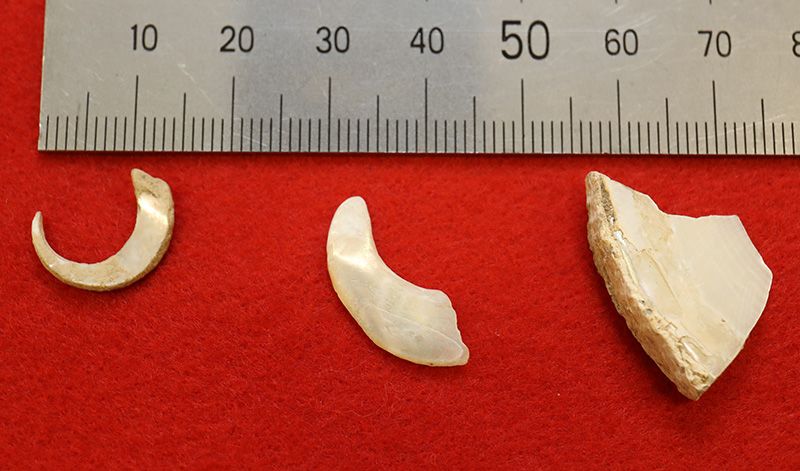 (From left) a complete fishhook, a half-finished tool, and a piece of unprocessed shell at Okinawa Prefectural Museum & Art Museum in Naha, Okinawa Prefecture. (© Jiji)
(From left) a complete fishhook, a half-finished tool, and a piece of unprocessed shell at Okinawa Prefectural Museum & Art Museum in Naha, Okinawa Prefecture. (© Jiji)
17
Popular manga Kochira Katsushika-ku Kameari-kōen mae hashutsujo (This is the Police Box in Front of Kameari Park, Katsushika) comes to an end after 40 years, 200 volumes, and countless episodes in the magazine Weekly Shōnen Jump. It sets the Guinness World Record for the most volumes published in a single manga series.
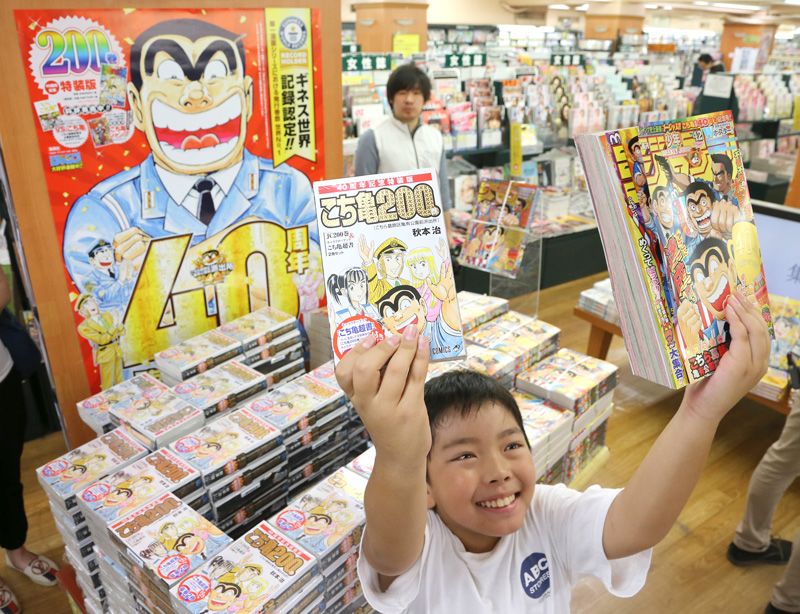 A boy holds the final volume of This is the Police Box in Front of Kameari Park, Katsushika and the edition of Weekly Shōnen Jump featuring its final appearance in the Kameari branch of Tsutaya in Katsushika, Tokyo, on September 17, 2016. (© Jiji)
A boy holds the final volume of This is the Police Box in Front of Kameari Park, Katsushika and the edition of Weekly Shōnen Jump featuring its final appearance in the Kameari branch of Tsutaya in Katsushika, Tokyo, on September 17, 2016. (© Jiji)
18
The Ministry of Internal Affairs and Communications announces that the population of people aged 65 and over has risen to a record high of 34.6 million (27.3% of the total population) as of September 15, 2016. With 19.6 million women over 65, the senior proportion of the female population reaches 30.1%, topping 30% for the first time.
Related article
Graying Japan to Face Unprecedented Challenges
The closing ceremony for the 2016 Summer Paralympics is held in Rio de Janeiro. Japan finishes with eight more medals overall than at the 2012 games in London, but without a gold medal for the first time since it began participation in 1964. It wins 10 silver and 14 bronze medals for a total of 24.
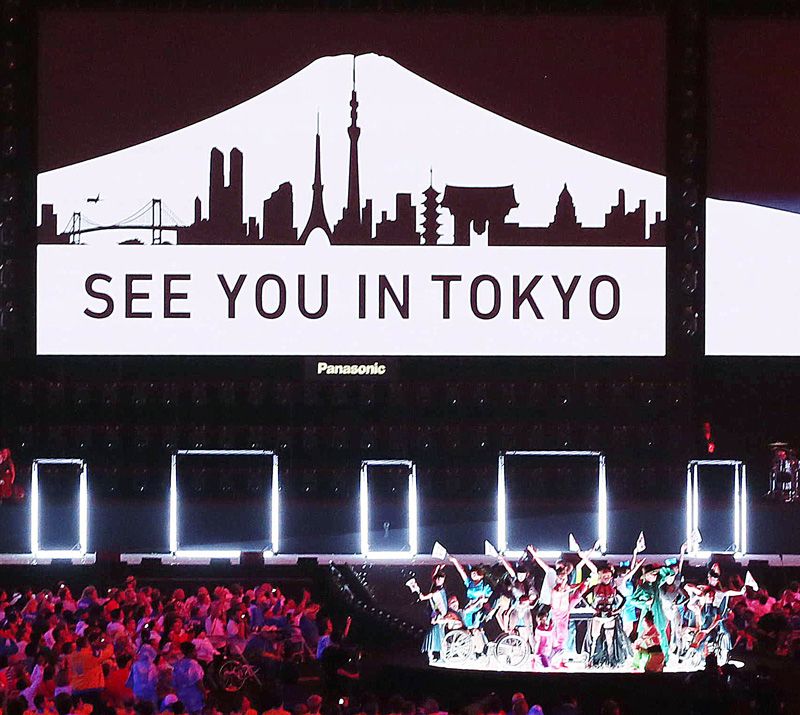 The closing ceremony for the Paralympic Games on September 18, 2016, in Rio de Janeiro included performances themed around the next host city Tokyo. (© Jiji)
The closing ceremony for the Paralympic Games on September 18, 2016, in Rio de Janeiro included performances themed around the next host city Tokyo. (© Jiji)
19
Prime Minister Abe meets with former Secretary of State Hillary Clinton, the presidential nominee for the Democratic Party, while in New York to attend the United Nations General Assembly. They agree to strengthen the Japan-US alliance.
Related article
Japan and the Next US President: Thinking the Unthinkable
21
At its policy meeting, the Bank of Japan unveils a new framework for keeping long-term interest rates at around 0%, after deciding that its existing easing policies and framework need a major overhaul.
Related article
Is the Unconventional Effective?
Cabinet members concerned with nuclear matters hold a meeting to discuss the decommissioning of the Monju fast-breeder reactor in Tsuruga, Fukui Prefecture. Chief Cabinet Secretary Suga Yoshihide says, “We will make a comprehensive review, including examining the prospects for decommissioning.” The government will continue with its policy of recycling nuclear fuel.
Times Higher Education announces its world university rankings for 2016–17. The University of Tokyo rises four places from forty-third to thirty-ninth, but remains fourth in Asia.
Related articles
Global University Rankings: How Are They Measured?
Japanese University Reforms and the Illusion of International Competitiveness
Globalization and Higher Education Reforms in Japan: The Obstacles to Greater International Competitiveness
22
The B. League is launched, unifying Japan’s two former professional basketball leagues, which had been competing since 2005. Previous failure to merge the leagues was a factor in the International Basketball Federation’s 2014 suspension of the Japanese Basketball Association, which meant its national teams could not take part in international competitions.
 Players from Alvark Tokyo and Ryūkyū Golden Kings enter the LED-enhanced court for a ceremony held before the opening match of the B. League at the Yoyogi National Gymnasium in Tokyo on September 22, 2016. (© Jiji)
Players from Alvark Tokyo and Ryūkyū Golden Kings enter the LED-enhanced court for a ceremony held before the opening match of the B. League at the Yoyogi National Gymnasium in Tokyo on September 22, 2016. (© Jiji)
Prime Minister Abe becomes the first incumbent Japanese leader to visit Cuba, meeting President Raúl Castro in Havana. The two discuss strengthening ties, including establishing a permanent office of the Japan International Cooperation Agency in the country.
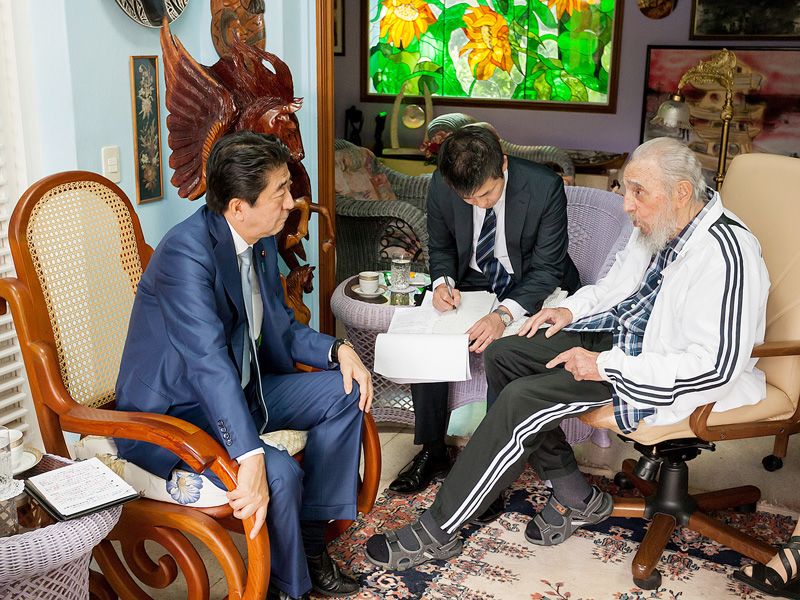 Prime Minister Abe talks with Fidel Castro (right), leader of the Cuban revolution and elder brother of Raúl Castro, the current president, in Havana on September 22, 2016. (© Estudios Revolucion/Jiji)
Prime Minister Abe talks with Fidel Castro (right), leader of the Cuban revolution and elder brother of Raúl Castro, the current president, in Havana on September 22, 2016. (© Estudios Revolucion/Jiji)
26
In his policy speech at the start of this year’s extraordinary Diet session, Prime Minister Abe pledges work reform to tackle the problem of long hours and achieve equal pay for equal work. He also calls on other parties to discuss reform of the Constitution.
Related articles
Will Japan Move to Amend the Constitution?
The Article 9 Debate at a Glance
The board of education in Uruma, Okinawa Prefecture, announces the discovery of Roman coins from around the middle of the fourth century in the city’s Katsuren Castle, a UNESCO World Heritage site. It is the first time that Roman coins have been discovered in Japan and they are thought to have been brought to the country through trade in the fourteenth or fifteenth century.
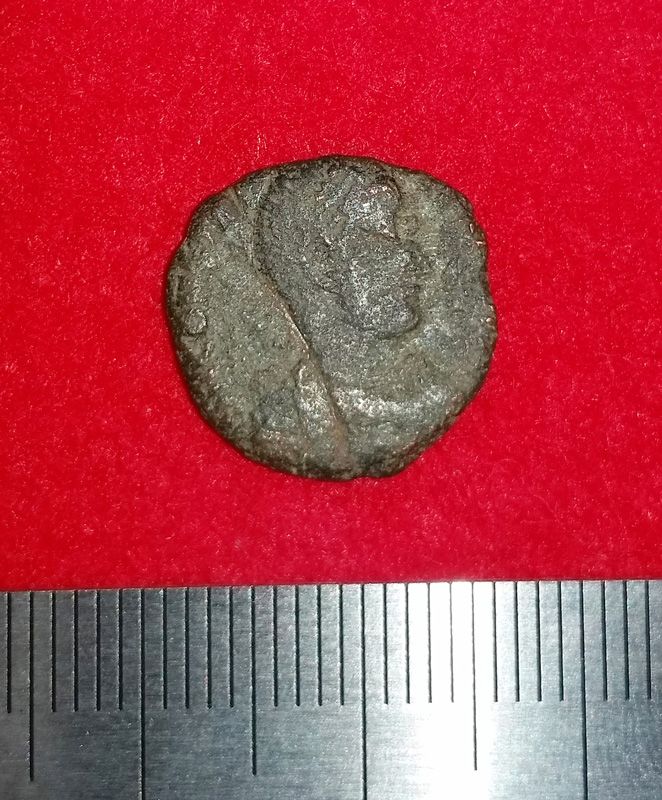 One of the Roman coins discovered in Katsuren Castle, Uruma, Okinawa Prefecture. (© Jiji)
One of the Roman coins discovered in Katsuren Castle, Uruma, Okinawa Prefecture. (© Jiji)